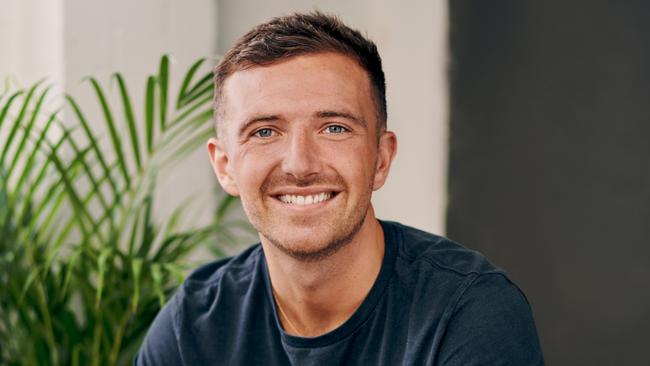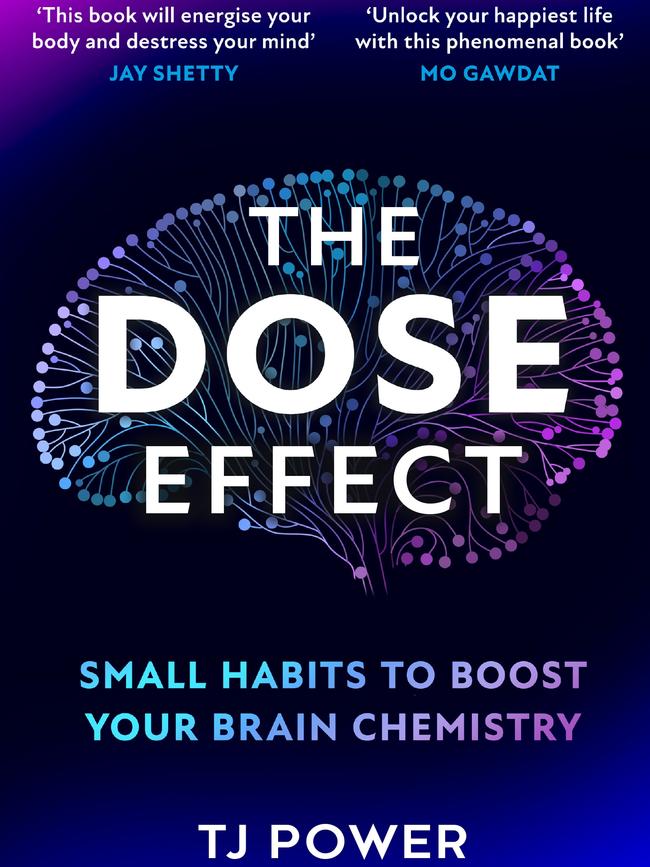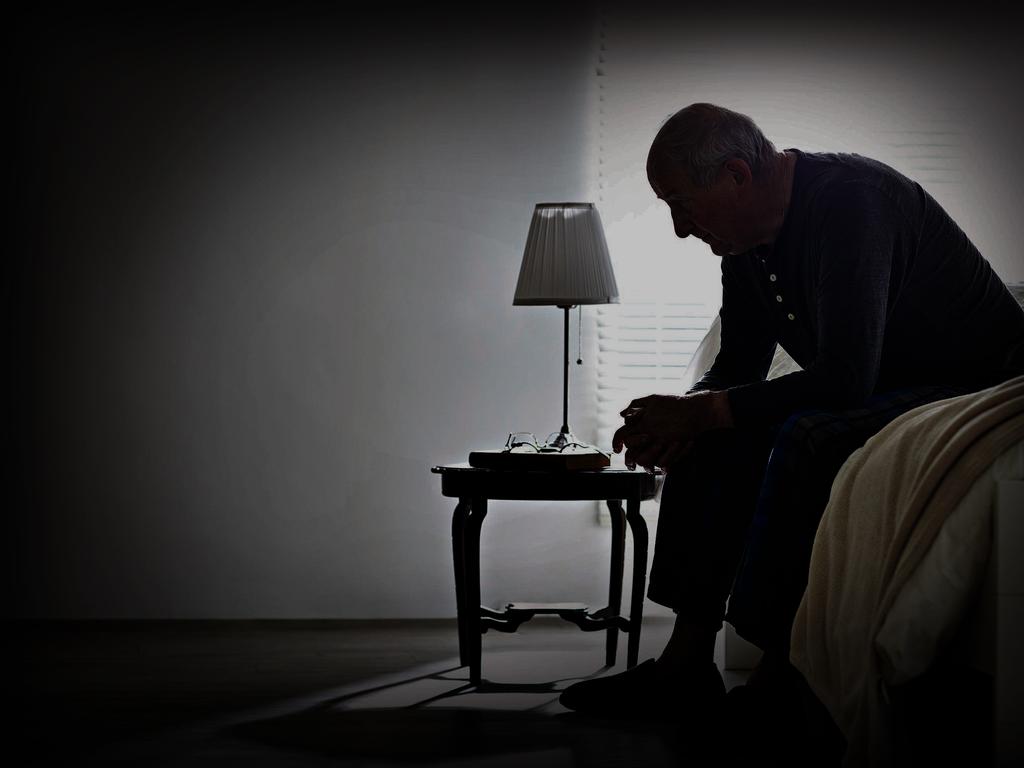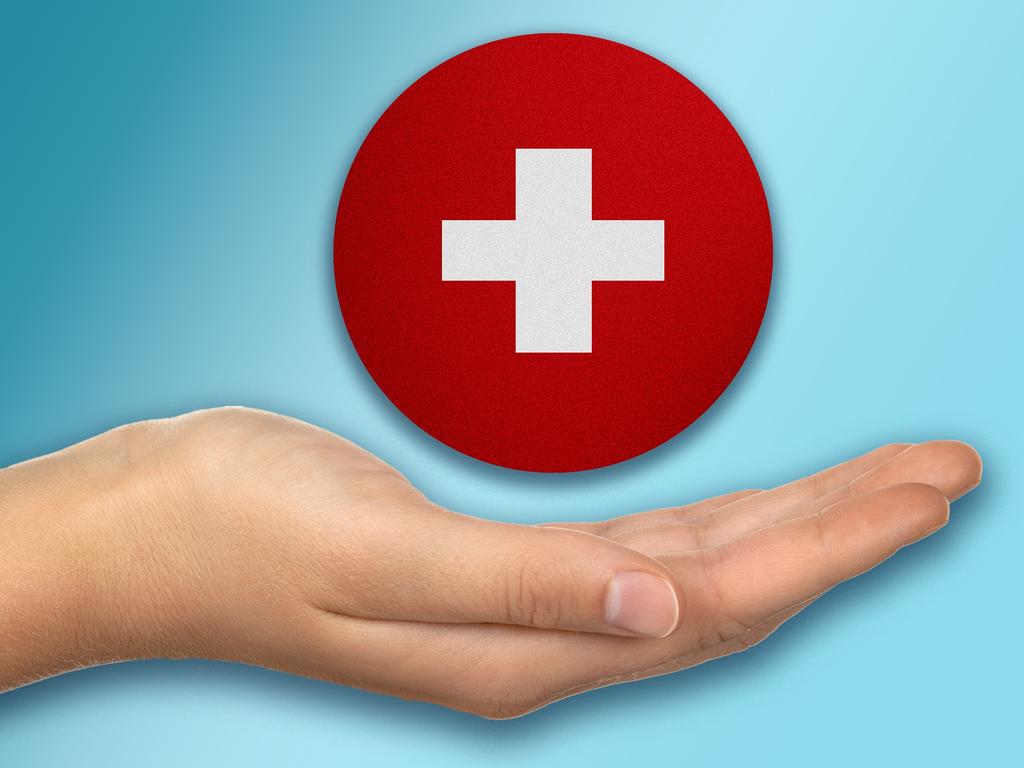How I cured my porn and alcohol addiction – by a neuroscientist
Tj Power says he trained his brain to control his worst impulses, and now he’s sharing his secrets for a happier, healthier mind.

Until six years ago, Tj Power was addicted to quick highs that left him depleted, whether from sugar, smoking, social media, porn or booze, to the extent that, he says, “I would have been considered an alcoholic”. Which, as a neuroscience student, was “ironic”, he says. “I was deeply studying my brain while screwing up my brain at the same time.”
Then, during his master’s at the University of Exeter he delved into three chemicals that govern our mental health: dopamine, which drives us to complete challenges by offering a sense of reward but, Power says, “is broken by the overstimulation of sugar and phones and alcohol”; oxytocin, which is released during social connection, of which we are now collectively in “deficit”; and serotonin, which is prompted by going outdoors, eating healthily and sleeping well or, as he puts it: “All those things we don’t do very well at the moment.”

Realising that, together with a fourth, endorphins, which limit stress through movement, they form the acronym DOSE, he spotted an opportunity to help reverse our mental health crisis. “I thought, this is so obvious why the mind is in pain. These chemicals are completely screwed as a result of our modern lifestyle.” He also had a personal epiphany, a “massive realisation [that] how I was living is definitely not how a human is designed to live”.
Power set up a research facility, the Dose Lab, leading a team investigating behaviours that could rectify such damage. He also visits schools and businesses, teaching children and adults how their brain works. On Instagram, he advises his 700,000 followers how to improve their cognitive function — another irony, he concedes, given his views on addictive tech: “It is a good way to get the message out there, but I don’t agree with it as an idea.” And now he has published The Dose Effect, a self-help manual to improve brain chemistry.
A passion for his purpose is the only way the 27-year-old — full name Thomas Jefferson, but called Tj since birth — was able to overcome his own addictions, which he traces back as far as swiping teaspoons of sugar from the kitchen cupboard at the age of five. The youngest of three siblings from Surrey, whose parents run a business training entrepreneurs, he was smoking aged 12 and at 13 discovered alcohol and porn, which he watched “pretty much every day until I was 22”.
When a cousin died, grief exacerbated his compulsions. “From 16 to 21, I was drunk all the time.” He scrolled social media from waking and couldn’t contemplate a second without distraction from screens or music. When he took weeks off booze to focus in exam periods, he “would get severe withdrawal”, and after a heavy night partying at the end of his final undergraduate year, he realised “my life was going to have to radically change”.
In part, his behaviour was born of his desire to fit in. But as an adult, he discovered he had ADHD, which he doesn’t believe defines him or need be a disadvantage, but means, he says, that his brain “potentially” produces less dopamine, so temptation seemed particularly exciting: “You’re driven to seek it out.”
To control such impulses, Power says, “I trained my brain to have more discipline”. He explains how an area of our brain, the anterior mid-cingulate cortex, is activated when we successfully exercise willpower. “The more you activate it, the easier it becomes to activate it. It’s like training a muscle,” he says. “That’s why coming off alcohol and smoking taught me how I could then come off social media and pornography.” This was “the hardest addiction to break”, he admits. “It has a massive effect on dopamine. It’s very hard not to have that moment of extreme stimulation.”

Spending more time in nature was pivotal, says Power, who moved back to Surrey three years ago to be near his parents. He prioritised a long walk every morning, which further convinced him to lead “as natural a life as possible — the polar opposite of how I had been living”.
Whether helping our ancestors hunt for food and shelter or driving us to finish that boring work project, dopamine rewards us for “doing hard things”, he says. “Our brain doesn’t want to be able to access dopamine quickly. It evolved to earn it — it malfunctions the system if we get all that pleasure within seconds.” And afterwards “we’ll experience depression, low mood and inattention”.
Now that what he calls “quick dopamine” is so easily available via ultra-processed foods and social media, he says implementing “strong boundaries” in our habits is essential to avoid disregulation, while other, achievable lifestyle changes can boost our oxytocin, serotonin and endorphins. Here’s how.
1. Don’t pick up your phone on waking
This is Power’s “most important” rule. Over three hours’ screen time a day is bad for our brains, he says, and he restricts himself from checking his social media to three times a day — 10am, 3pm and 8pm. He also views his content on X and YouTube because unlike Instagram and TikTok they are not characterised by short video reels, so “from a dopamine perspective, they’re more effort to engage with”.
2. Try phone fasting
He suggests leaving your phone in a different room for an hour every evening. “If you don’t have physical separation from the device, you’re going to go on it.” Watching television, he says, “is nowhere near as overstimulating for our brain”.
3. Make your bed every morning
It’s a natural dopamine-building activity, as is washing bed linen — a time-consuming faff, but we all get into clean sheets happy to have done it. “That’s dopamine in action,” he says. “It’s rewarding us for effort.”
4. Concentrate on a task for at least 15 minutes every day
Set a stopwatch to ensure that you enter into a “flow state” — a deep focus that builds dopamine. “It’s very good for our brain if we can get to 30 or 45 minutes.”
5. Set yourself a long-term goal
Be it health, family or work-orientated. It will distract you from pursuing “quick” dopamine.
6. Splash your face with cold water every morning
Because, Power explains, pleasure and pain operate on a metaphorical seesaw in an area of the brain called the hypothalamus, the temporary discomfort driving dopamine release. “It’s horrible in the moment, but after you feel alive and alert.”
7. Be kind
Belonging to a community was once essential for our survival. Now that we live largely online and often don’t know our neighbours, we are living in a “deficit” of the feel-good hormone oxytocin, released from connection, making us anxious, Power explains. “We need to shift back towards a more oxytocin-driven society, where we’re out of our own heads and thinking more about others.” Every day do something kind, whether helping a colleague or listening to someone’s problem, because “anytime you’re in service to people, oxytocin is on the rise”. Smile at the fellow dog walker, or the person serving your coffee. “People who prioritise what we call fleeting connection feel much less lonely.”

8. Give more hugs
Oxytocin is also boosted by touch, and Power says “we need about five hugs a day” to benefit. Strangers will suffice — he hugs me after our interview — but, he says, “you get more oxytocin if you feel a connection with that human being, like your mum or sibling”. Yesterday he hugged his sister, who is going through a break-up, for 20 seconds, “trying to put oxytocin into her body”.
9. Stay in touch with friends
If you can’t physically meet them, try a video call two or three times a week. The sound of someone’s voice increases oxytocin — research has found that texting doesn’t, says Power, who adds that oxytocin is also boosted by positive “connection with yourself”, so try to curb your negative self-talk and identify an achievement you’re proud of every day, whether that’s exercising or reading a chapter of a book.
10. Think of one or two things to be grateful for
Gratitude, he says, is “calming to the brain. It creates a very positive oxytocin-type emotion in the brain when we celebrate things we do have in our life.”
11. Have regular walks and workouts
When stressed by the threat of starvation or physical danger, our ancestors would have to move to hunt for food or flee from an animal, Power says, so “our brain paired the idea of stress and physical action together effectively”. Exercise releases endorphins, which reduce stress — any movement is beneficial, but, as Power reminds himself in the gym, “the more I physically push myself, the more [stress] I’m going to be able to tolerate”. As a “base requirement” he says we should walk every day, and ideally do two strength sessions and two cardio sessions such as running, cycling or swimming a week.
He enjoys 60-minute morning walks, which, he says, leave him “inspired and creative”, and he suggests further short walks at lunchtime and just before sunset to expose ourselves to natural light and maintain a healthy circadian rhythm — sleep-wake cycle — to encourage a good night’s rest.
12. Switch to side lights
Spending the day under artificial light then looking at screens all evening confuses our brain. “A bit of structure is good,” he says. Use side lights in the evening. “Your brain will see the overhead light as the sun and will reduce [the hormone] melatonin, which will put you to sleep.”
13. Rewrite your shopping list
Astonishingly, 90 per cent of serotonin is produced in the gut, so for healthy function Power recommends making 80 per cent of your supermarket shop healthy food such as vegetables, fruits, nuts, fish, meat and eggs. “Fruits will quickly activate serotonin for a mood boost. Nuts are good,” says Power, who met his girlfriend, the clinical nutritionist Georgia Farrar, 28, through their shared passion for healthy eating, last January. He advises above all to ask yourself if the food you’re buying has “taken a lot of human interference to create” because if so, “it’s probably going to disrupt serotonin”.
14. Start ‘underthinking’
To stop obsessing over worst-case scenarios, which speeds up the heart rate and releases the stress hormone cortisol, Power advocates two or three minutes a day of what he has called “underthinking”, which is achieved through breathing exercises to improve our brain’s response to fear. Breathe in through your nose for four seconds, and out through your mouth for six seconds. “When we slow our breathing to ten-second chunks for a few minutes, we calm our nervous system. If our nervous system is calm our serotonin can build.”
15. Laugh every day
Laughter releases endorphins because it “physically utilises our body”, he says, and we should do it once a day by meeting friends, watching a funny TV show or spending more time with children, who often laugh a lot. “We laugh so much less now, predominantly because we’re not spending enough time with other humans,” says Power, who says singing to a favourite song for five minutes every morning will also release endorphins. “The more you go for it, the calmer your brain becomes.” Baths are beneficial because our body perceives hot water as potential danger, releasing endorphins in response. “You need about 15 minutes,” he says.
16. Now stretch
This is another effective endorphin releaser. If you’re a yoga fan, great. If not, try Power’s 30-second stretching routine three times a day. “Reach up tall towards the sky. Reach down towards your toes. Put your hands out in front of you and twist your spine side to side. Those three movements counter the life of sitting on a chair.”
The Dose Effect by Tj Power was published on January 16 (HarperCollins $36.99)




To join the conversation, please log in. Don't have an account? Register
Join the conversation, you are commenting as Logout